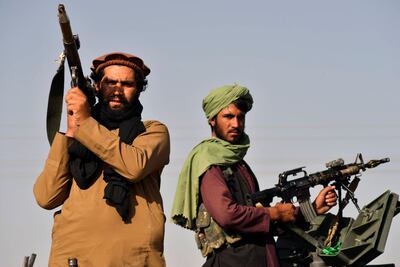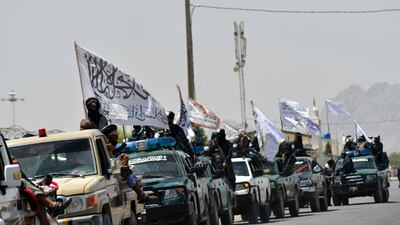Taliban assurances that they will not allow terrorist groups to use Afghanistan as a safe haven cannot form the basis of foreign policy on engagement with Afghanistan.
In attempts to portray the new rulers as reformed and modernised, the Taliban have pledged to prevent a return to the days of Al Qaeda training camps in the country.
But former British soldier Robert Clark, a defence policy associate at the Henry Jackson Society think tank, predicts that ISIS-K would “thrive in the security vacuum” and believes the Taliban are not in a position to offer such a guarantee. He said that the UK government and its allies would be “outrageously naive” to believe any such promises from the extremist group
“It’s naivety bordering on complicity,” Mr Clark said.
He pointed to the suicide bombing at Kabul airport last month that killed more than 170 people and injured at least 200 as the most obvious example of the chaos that reigns in the country.
And as western leaders continue to grapple over how to respond to Afghanistan’s new rulers, Mr Clark predicted that terrorist groups would “thrive in the security vacuum” left by the departure of foreign troops.
Mr Clark told The National: “It’s really difficult for them [the Taliban] to state to the West that we will protect the security, we will not allow the country to be used for terrorist plots in the West.
“The Taliban say they control all of Afghanistan but they cannot control the entire country.”
He said it would be ridiculous to believe that the group’s 70,000-strong fighting force would be enough to somehow prevent terrorist groups from putting down roots in the country of 38 million.

And he foresees a situation in which ISIS-K – also known as ISIS in Khorasan – Al-Qaeda and the Haqqani Network will find a ripe breeding ground for their ideologies and space to grow their networks, now that foreign troops are no longer present.
“It is a very unpalatable situation for Britain to be in.
“All of these different groups are incredibly fragmented," Mr Clark said.
“ISIS is a franchise. You cannot defeat it through military means.”
Mr Clark dismissed the claims being made by the Taliban that they will guarantee the rights of women, respect minorities and bring law and order to the country.
He said the group had swept back into power using tactics including “murder, threat, intimidation and bribery”, 20 years after they were toppled by US and coalition forces.
The group has said they will not take revenge on opponents, but media reports suggest otherwise.

On Monday, UN human rights chief Michelle Bachelet said her office had received credible allegations of former Afghan security forces being killed by Taliban members.
There have also been reports of officials from the previous government and their relatives being arbitrarily detained and later found dead, she said.
Addressing the UN Human Rights Council, Ms Bachelet warned of a “new and perilous phase” for Afghanistan, criticising the Taliban for a disconnect between their words and actions.
She cited several allegations of the Taliban conducting house-to-house searches looking for officials from the previous government and “people who co-operated with US security forces and companies”.
Such searches took place in at least six cities, Ms Bachelet said.
Mr Clark said the return of a Taliban government in Kabul was “embarrassing politically and diplomatically” for Britain and “from a humanitarian and defence perspective it is shameful”, given the huge sacrifices made by troops.
The UK lost 454 service personnel in Afghanistan during the 20-year war which began less than a month after Al Qaeda terrorists carried out the 9/11 attacks in 2001.


